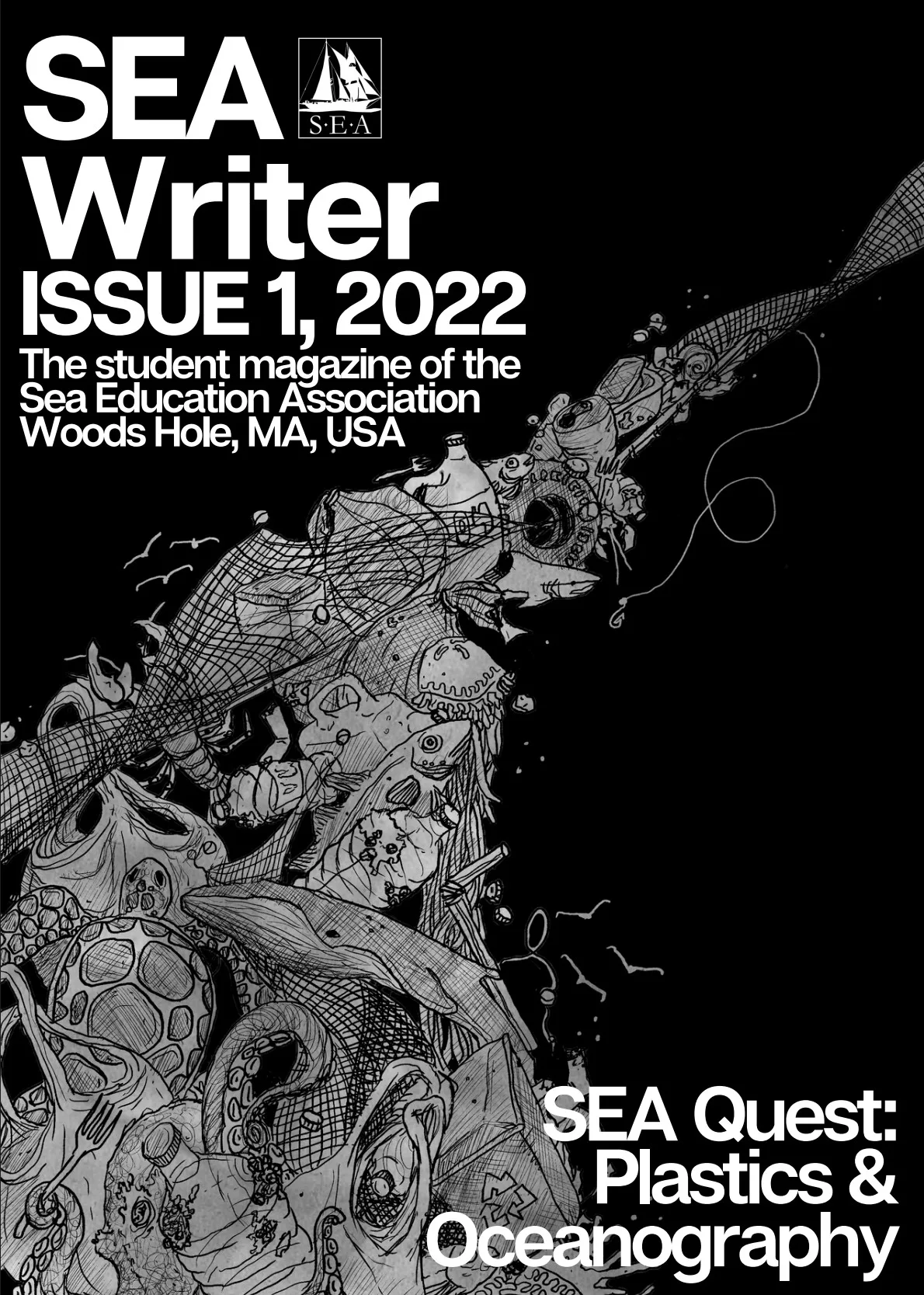News
SEAWriter: SeaQuest: Plastics & Oceanography (Issue 1, 2022)

Introduction by Vivian Goller
During June of 2022, SEA Writer emerged as a product of SEA Quest-Woods Hole’s high school online summer seminar, “Plastics and Oceanography,” which focused on analyzing and studying the impact plastic waste has on marine ecosystems through a trilogy of mini courses: “Oceanography,” “Nautical Science,” and “Oceans and Society.” Folded within the pages of SEA Writer are the stories and findings of young environmentalists and authors, who hope to improve our planet one article at a time. Through SEA Writer, scientific publications are re-written to become more digestible; research and data are combined with insight from young writers to produce articles that are engaging as well as informative. In doing this, SEA Writer hopes to spread knowledge about the science world to readers of every age and inspire change in those who are curious enough to read.
In this issue of SEA Writer, six articles written by students of “Plastics and Oceanography” provide a sample into the larger global plastic problem, each piece offering a different aspect of the issue. From the effect plastic additives have on fin whales to the plastic invasion of pristine Arctic landscapes, this edition of SEA Writer tells the story of plastic. In the latter pages of the magazine, our fellow students from Kiribati describe the details of their Oceanography project, a beach cleanup analysis. Then all of the students of “Plastics and Oceanography” explore a list of what individuals, companies, governments, and researchers can do regarding plastic in a segment titled, “What We Can Do.” Through this final page, SEA Writer hopes to motivate and inspire readers and remind all who read that through a collaborative initiative, we can shape the future!
About SEAWriter
SEAWriter is a student-published magazine, usually created as part of SEA’s Environmental Communications course. Each edition features articles, creative writing, and artwork contributed by program students and faculty. Environmental communication is essential in raising awareness, inspiring action, and bridging the gap between science and society. SEAWriter serves as a culmination of everything students have learned in all their courses and research as well as their field component. Through storytelling and visual expression, students apply their knowledge and creativity to effectively convey environmental messages to a broader audience.